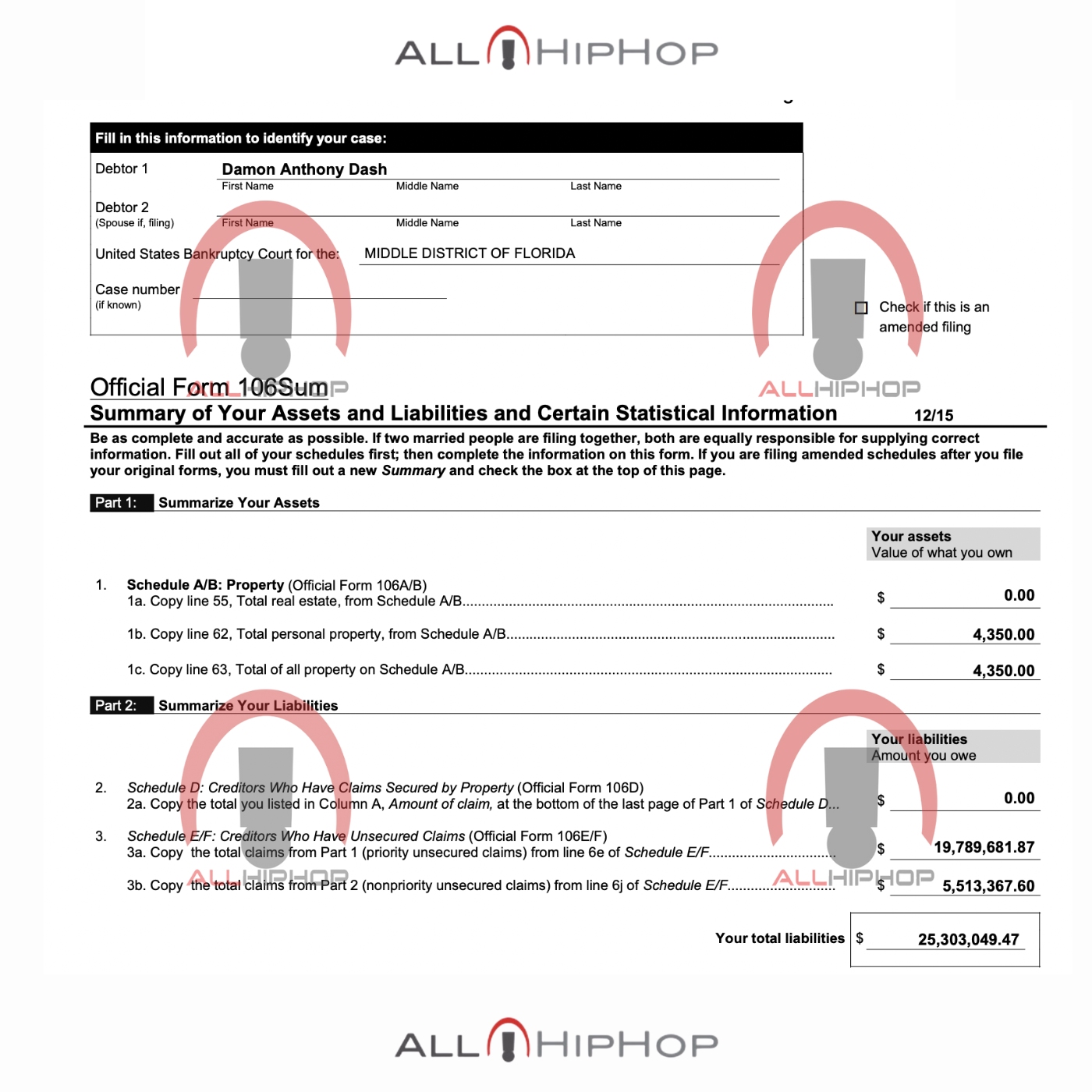Damon Dash filed for Florida Chapter 7 bankruptcy as he sought to protect more than $25 million in debt, mainly related to unpaid taxes, child support and legal judgments.
The 54-year-old Roc-A-Fella Records co-founder filed a 56-page petition in the U.S. Bankruptcy Court in the Central District of Florida on Thursday (September 4), listing only $4,350 in personal property.
These include $500 for phone, $2,500 for jewelry, clothing, two guns and $100 for cash. He reported a monthly fee of $5,200 and had no income.
Damon Dash owed $8.7 million in deductions to the New York State and the IRS, and his debt dates back to 2005, court documents show. The New York State Department of Taxation and Finance alone is looking for only $9.65 million, while Los Angeles County is looking for $5.79 million.
The New Jersey tax department began pursuing $3.5 million in the early 2000s, causing the federal government to generate a total of more than $19 million.

Damon Dash also owes more than $647,000 in unpaid child and spouse support, including obligations to ex-wife Rachel Roy and Cindy Morales. The New York City Department of Social Services requested an additional $487,000 in debt and education costs.
The document includes over $5.5 million in unsecured claims, including litigation, unpaid wages and legal fees. Among the creditors are filmmakers Josh Webber and Muddy Waters Pictures, who won a $4 million default judgment against DASH in 2025, against the film Dear Frank.
Photographer Monique Bunn owes $30,000. Producer Edwyna Brooks is listed at $78,000, while Christopher Brown’s attorney owes $100,000.
Government agencies are listed as DASH’s largest secured creditor. He revealed that his business entities – including Dash Films Inc., Poppington LLC and Roc-A-Fella Films Inc. – currently have no value.
In 2024, New York officials auctioned a third of Dash’s shares in Roc-A-Fella Records to pay his tax bills for about $1 million. However, the proceeds were redirected to pay back taxes and receive $145,096 in child support, while other creditors were unpaid.
The court has not arranged a meeting of creditors. If approved, the case could lead to liquidation of the remaining assets of the cart.
This is not shocking. Damon himself told the court through his attorney that he was considering taking the move, which could be a shrewd business move.
Chapter 7 Bankruptcy gives individuals the opportunity to reach the reset button when debt becomes difficult to manage.
It can clear most unsecured bills such as credit cards, medical expenses, or payday loans in just a few months. Once this happens, collectors can’t call, sue or decorate their wages.
The process can also immediately relieve stress by automatically pausing collection, foreclosure or eviction. Most people don’t lose much (if any) because the law allows them to keep the essentials they need, such as cars, household items, retirement savings, and sometimes even a part of their home net worth.
Unlike Chapter 13, there is no long-term repayment plan – often referred to as an “assetless” case, because creditors simply do not receive any gains.
While Chapter 7 applications are still in credit reports for a decade, many people start rebuilding credit within a year or two as heavy debt is eliminated.
In short, it’s a quick way to keep things that matter most and start fresh.

